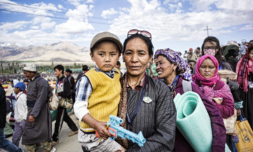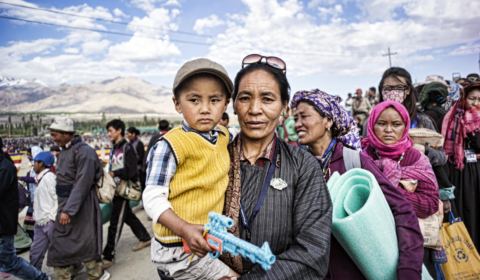Which nations are most culpable?
Unsurprisingly, the report says the world’s leading emitters are the US and China, with each responsible for global income losses of $1.8 trillion from the years 1990-2014.
During the same time period, Russia, India, and Brazil’s emissions each caused income losses of $500 billion. When combined, these figures amount to about $6 trillion in cumulative losses, about 11 percent of total global Gross Domestic Product (GDP).
To calculate the figures, researchers assessed how much carbon each nation released into the atmosphere and how this contributed to speeding up the process of climate change. It also brought in existing data on how rising temperatures have impacted the economies of surrounding nations.
For example, the report blames US emissions for extreme heat and drought in Mexico, which cost the country $79 billion between 1990-2014 due to reduced labour productivity and weakened crop yields.
In a cruel twist of fate, crop yields in northern US states actually benefitted from warmer temperatures caused by global warming – earning America $182 billion across the same period, according to the study.
While it’s true that climate-focused lawsuits have become more common, they’ve usually been filed against major oil companies and other high-emitting businesses. Targeting specific nations for their emissions, on the other hand, has been more difficult without comprehensive scientific research into the topic.
In light of the figures published by Dartmouth College, legal battles and climate negotiations aimed at holding high-emitting nations financially responsible for the damages they’ve caused will have newfound credibility.
What would climate reparations achieve?
An international approach to climate reparations would not only seek to rectify the economic, social, and environmental damages that the Global South has experienced (and will continue to experience) as a result of the North’s emissions.
It would also serve to tackle the oppressive systems of historical colonialism and exploitation, which have left poorer countries without the resources they need to build resilience to the climate crisis, both financial and administrative.
The new funding would enable governments in the Global South to provide reliable energy access to citizens, to improve climate adaptation methods, and to build safe, climate-resilient housing.
The funding could also be used to developing nations get green energy systems off the ground, thus slowing any reliance on fossil fuels, and to strengthen their food and water systems to deal with growing resource scarcity.
Climate reparations were touched upon at COP26 last November, and Dartmouth’s new report will surely create stronger grounds for pushing forward the agenda at this year’s event in Egypt.
In combination with the latest UN’s IPCC climate report which states how communities contributing the least to climate change are suffering the most, the argument for demanding climate reparations for the Global South has never been more justified.




















